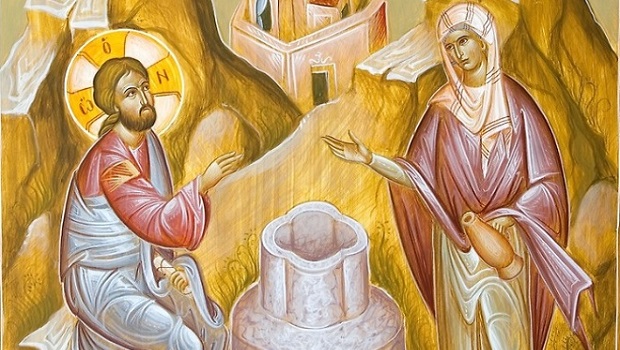Elder Joseph of Vatopaidi
All the temptations, whenever they overcome us, do, indeed, injure us and are obstacles on our path. Their sole aim is to erode love. Satan concocts situations and events which, in essence, don’t really exist but which befuddle the minds of those who are either weary, weak, or suffering a temporary withdrawal of Grace. The devil attempts to convince people to believe the misapprehensions and they start to accuse, to become crafty, to undermine, to censure, to suspect others. In this way, the bond of love which brings us to perfection is weakened.
The fact that we’re believers is no accident, particularly for us monks. The action of the blessed Divinity intervened personally. Look at what our Jesus says: ‘No-one can come to me unless my father, who sent me, draws them’. (Jn. 6, 44) He doesn’t say that no-one can come to Him unless the Father calls them. Because a call can be made from a distance, through the voice, or a signal, a gesture or by some other means. That’s not the case here. Here it’s attraction. In other words, Jesus is saying ‘You didn’t just come to me, but did so because the Father attracted you in the first place. He drew you and brought you to me’. That’s the action of the Father. And again he says: ‘No-one comes to the father except through me’ (Jn. 14, 6). Because “I am the way, the door and life’. This is the second action of the second Person. And Saint Paul says that no-one can say Lord Jesus except in the Holy Spirit (I Cor. 12, 3).
The fact that we today find ourselves in the fragrance of the knowledge of God is proof- not an indication, not a symbol, not a sign- that the blessed Divinity acted in His overwhelming love. Because God doesn’t make mistakes and his gifts are not begrudged. Have you seen how, with creation, when God wished to make creation, with how much harmony and godly wisdom everything was put together, so that it was ‘very good’. And when He made us, He prepared everything- light, earth, sea, the planting of Paradise- and then created us, ‘for whom all things were made’.
The same is true now, in the re-creation, but even more so. Because we have an ‘abundance of Grace’, according to Paul. Because the Only-Begotten Son did not ‘speak and they were made’, but came personally and put on our own nature, walked with us, ascended the Cross and, with His bloodied fingers, sealed our salvation, abolished the sin of the world and destroyed Satan. He opened Paradise and boasted ‘Father, I want those you have given me to be with me where I am, and to see my glory (Jn. 17, 24). This is astonishing. These are positions, not narratives. In brief, it’s the Promise of the Father, our inheritance. And it’s all achieved through faith.
If we keep this belief that God has called us, we no longer doubt, we don’t wonder. What we fear and sigh over is that we’ll maybe feel sleepy and make a mistake so that, instead of walking east towards our destination, we’ll turn west, through our own lack of attention. This is our fear: that we may become slothful, forgetful. But even this, that this could happen, is untimely, since God knew in advance that we’re weak, yet still did not renounce His love: He ‘chose the foolish things…the weak things… and the despised things- and the things that are not’(1 Cor. 1, 27-28).
The feast of the forefathers is really moving. God called them and they followed Him, they bore their cross in their own way and gained what was promised, yet we have something even more important. Because for us it’s not just expectation, but proof of the present and the future, which we possess through faith in our Jesus and through the proof of His love and His Grace, which acts in our souls. With this, may we prepare to venerate the feast of His birth, too, and to celebrate our own re-birth.
Read the previous parts here (part 1, part 2)
Source: pemptousia.com




0 Comments